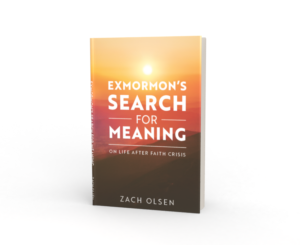We tend to believe that we are rational, profit-seeking, self-interested, long-term players, with access to information and the time and inclination to process it. Therefore the only things we would spend time and money on are things that we believe are worth more than they cost. Who would be stupid enough to consistently waste time and money on something that didn’t give more value back in return?
Look at all the time spent with our phones and social media. Over two billion people currently use Facebook. And since we only spend time and money on things that we believe are worth more than they cost — and since Facebook is free, no matter how minor the benefits, they’re still more substantial than the cost…right?
Well, as Daniel Kahneman, in his book Thinking, Fast and Slow, says,
“Our comforting conviction that the world makes sense rests on a secure foundation: our almost unlimited ability to ignore our ignorance.”
Well-funded marketers are working overtime to take advantage of our psychological vulnerabilities to confuse and deceive us about the anxiety, personal freedom, independent thought, outrage, democracy and certainly time that Facebook costs. Yet thanks to our bias for ignorance, if anyone asked, “why Facebook?”, many would reply, “why not?”
In the New Yorker article Why Facts Don’t Change Our Minds, Elizabeth Kolbert explains how cognitive scientists are able to demonstrate just how ignorant we are of our ignorance — in this case when it comes to our stances on political issues. Multiple kinds of studies show that even when you give people evidence that refutes their beliefs, they still fail to revise them.The ignorance only begins to crack when people are instructed to explain, in as much detail as they can, the impacts of implementing their stance.
“Most people at this point ran into trouble. Asked once again to rate their views, they ratcheted down the intensity, so that they either agreed or disagreed less vehemently.
Sloman and Fernbach see in this result a little candle for a dark world. If we—or our friends or the pundits on CNN—spent less time pontificating and more trying to work through the implications of policy proposals, we’d realize how clueless we are and moderate our views. This, they write, “may be the only form of thinking that will shatter the illusion of explanatory depth and change people’s attitudes.””
So, in the case of using “free” services online, if we spent less time swiping, liking and posting and more time trying to work through the implications of social media use, we’d realize how clueless we are and stop hurting ourselves.
Let’s try it:
“Our stupidity may be clearly proved by the fact that we hold that “buying” refers only to the objects for which we pay cash, and we regard as free gifts the things for which we spend our very selves.
These we should refuse to buy, if we were compelled to give in payment for them our houses or some attractive and profitable estate; but we are eager to attain them at the cost of anxiety, of danger, and of lost honour, personal freedom, and time; so true it is that each man regards nothing as cheaper than himself.”
This is similar to a quote from Henry David Thoreau,
“The price of anything is the amount of life you exchange for it.”
Put another way, “the value of anything is the amount of life you pay for it.” So let’s look at the record: what would your calendar say about what you value the most? Does the amount of time you’ve spent online align with your values? Is your life, as Seneca points out, worth less than the paltry friend requests, status updates and clickbait?
Ancient Stoic philosophers believed that the key to having a good life was to value things that are genuinely valuable and be indifferent to things that lack value.
William B. Irvine, in Guide to the Good Life: The Ancient Art of Stoic Joy, attributes Marcus Aurelius to saying,
“Because we have it in our power to assign value to things, we have it in our power to live a good life.”
By assigning things their correct value we can avoid much suffering, grief, and anxiety. Consider a handful of values one could choose from to lead to a good life: honesty, hard work, confidence, love, creativity, adventure. How does time on Facebook support these or any other quality value?
For me, questions like these help me put Facebook and all other types of social media in their proper place. The information we consume changes us. Facebook isn’t free. Your life is more valuable than social media.






